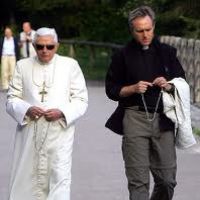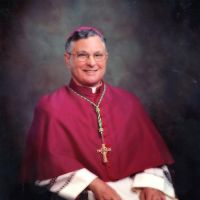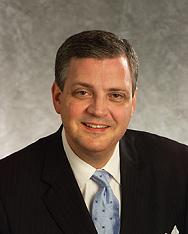This past Sunday 's Gospel reading is always interesting to me . In St John Baptist gives some interesting advice in part:
The crowds asked John the Baptist,
"What should we do?"
He said to them in reply,
"Whoever has two cloaks
should share with the person who has none.
And whoever has food should do likewise."
Even tax collectors came to be baptized and they said to him,
"Teacher, what should we do?"
He answered them,
"Stop collecting more than what is prescribed."
Soldiers also asked him,
"And what is it that we should do?"
He told them,
"Do not practice extortion,
do not falsely accuse anyone,
and be satisfied with your wages."
Military folks don't comlainabout your pay ? That is something that pehaps one would not expect for him at first. Pope Benedict commented on this passage at yesterdays Angelus. An overview is here.
The Vatian does not have the full English translation of the Holy Father's preaching yesterday but someone has a translation up here. The bolding is mine.
Dear brothers and sisters!
The Gospel for this Sunday of Advent once again presents the figure of John the Baptist, as he speaks to the people who have come to him by the river Jordan to have themselves baptized.
Since John, with forceful words, calls on everyone to prepare themselves for the coming of the Messiah, some of them asked him: "What must we do?" (Lk 3,10.12.14). These dialogs are very interesting and prove to be of great actuality.
The first answer is addressed to the crowd in general. The Baptist says: "Whoever has two cloaks should share with the person who has none. And whoever has food should do likewise" (v 11).
Here we can see a criterion of justice that is inspired by love. Justice demands overcoming the disequilibrium between those who have superfluous things and those who lack necessities. Charity urges us to be attentive to others and to meet his need, instead of finding justifications to defend our own self-interests.
Justice and charity are not contradictory - they are both necessary and complement each other. "Love — caritas — will always prove necessary, even in the most just society... (because) there will always be situations of material need where help in the form of concrete love of neighbour is indispensable" (Enc. Deus caritas est, 28).
Let us look at his second answer which was addressed to some 'publicans', the tax collectors for the Romans. Because of this, they were despised [by their fellow Jews], and also because they often took advantage of their position to rob others. The Baptist does not ask them to find another job, but only not to demand more than the required amount (cfr v 13).
The prophet, in the name of God, does not ask for exceptional gestures, only for the honest fulfillment of one's duty. The fist step to eternal life is always observance of the commandments - in this case, the seventh, "Thou shall not steal" (cfr Ex 20,15).
The third answer had to do with soldiers, another category endowed with certain powers, and therefore, tempted to abuse them. He tells them: "Do not practice extortion, do not falsely accuse anyone, and be satisfied with your wages" (v 14).
Even in this case, conversion begins with honesty and respect for others: an indication that is good for everyone, especially for those with greater responsibilities.
Considering these exchanges together, we are struck by the great concreteness of John's words: Since God will judge us according to our actions, it is there in our behavior, that we must show we are following his will.
That is precisely why the Baptist's injunctions are always actual. Even in our very complex world, things would go so much better if everyone obeyed these rules of conduct.
Let us pray to the Lord, through the intercession of the Most Blessed Mary, so he may help us prepare for Christmas by bearing good fruits of conversion (cfr Lk 3,8).
After the prayers, he said:
The European Encounter for Young People organized by the Community of Taize will be held in Rome from December 28 to January 2. I thank the families who, following the Roman tradition of hospitality, have made themselves available to be hosts to this young people.
But because, thank God, the requests for participation have been greater than expected, I renew the appeal, already made in the parishes, so that, in all simplicity, other families may also have this beautiful experience of Christian friendship.
















No comments:
Post a Comment